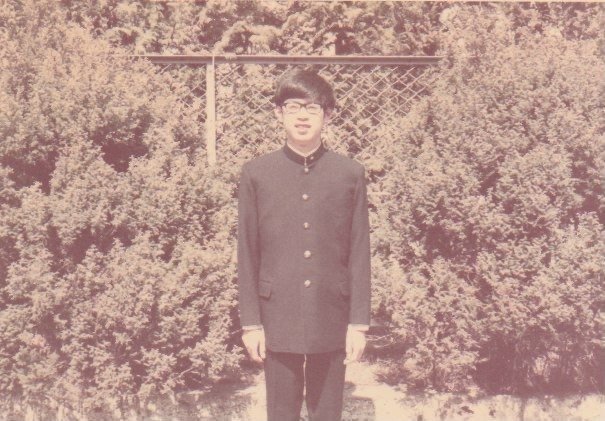
A Story of My Roots and Routes--Part 3 "HOME WAS NOT HOME"
By Atsushi Furuiye
Part 2 "UPROOTING" is here.
The apartment that Dad’s company provided us was in Yokohama in Kanagawa prefecture, a city next to Kawasaki. The house was more or less the same as the one we lived in five and a half years ago. I was luckily admitted to one of the most prestigious high schools in Japan. I had to ride on a train by myself to get there, which I had never done because I was only in Japan until I was nine years old. I had to learn how to buy tickets, take the right train, and how to behave while on them. We had to learn all over again where to go shopping for whatever we needed, including groceries and food, clothing, books, records, etc. It was all new to me, as new as Mexico was at the beginning. I did know the language, but not the way people lived. I didn’t have any friends. But I was full of hope. After all, I was a Japanese living in Japan.

April 1973. The first day of school back in Japan. On the train platform, I saw a girl waiting for a train in the uniform that belonged to my new school. I said hello to her, but she ignored me. It was utterly inappropriate to greet her unless you were already acquaintances.
The first thing a freshman needs to do in class is to introduce yourself to others. It inevitably involves telling what junior high school you are from. When I said it was the Japanese School in Mexico, there was an uproar. Later I learned that there were only about 200 high school students nationwide who came back from overseas that year. It also happened to be the first year that graduates of overseas Japanese junior high schools were allowed to apply directly to high schools in Japan.
Anyway, some students started to call me “Mexico” the day I started there. Academically, I didn’t have much trouble; a year and so I spent at the Japanese School in Mexico was more than enough to catch up to the standards in Japan. It also helped me understand how to socialize with my peers at school, but it was not enough in this field.
I became the stranger among the students. First of all, I acted like I used to in Mexico. I was positive in most ways, spoke up on most things, and was self-confident. I carried notebooks and utensils that I had bought in Mexico, the bag was of ethnic design from the indigenous people there.
I didn’t care that I stood out. I had been an ultimate minority in Mexico as a lone Japanese, so being different from everyone else was something I was comfortable with. Some of you readers of this story might have heard that Japan is a homogeneous and conformist society. I was doing the opposite. Let me list what else I perceived as different between myself and my peers: I was fluent in both English and Spanish. I had a keen awareness of my national identity. I did not know what the popular shows on TV or the songs, actors and musicians had been. I didn’t know where the hotspots to go on holidays were.
I was in fact a foreigner in Japan. But I looked Japanese. People expected me to act no different from them, but I couldn’t because I didn’t know how. It enforced me to keep up my ways, and I became a non-Japanese Japanese in Japan. Japan was not a home for me. I was living there, I was one of its nationals, but I didn’t belong there, and I didn’t try to assimilate. Instead, I was criticizing the ways and manners of the Japanese society comparing them to what I had learned in Mexico and to the American values.
When someone asked me where I was from, I would answer “Mexico.” When someone asked me where my home country is, I would answer “My second home is Mexico. I am not sure about the first one.” When Mexico met with Japan in an international sports competition, I cheered for Mexico.

to Part 4 "CONNECTING WITH TCKs"
This story was originally written in English for a fellow TCK who doesn’t read Japanese. I revised and rewrote it for general readers in Japanese, and the two are not exact translations of each other. You can read this part of the story in Japanese here.
いいなと思ったら応援しよう!

